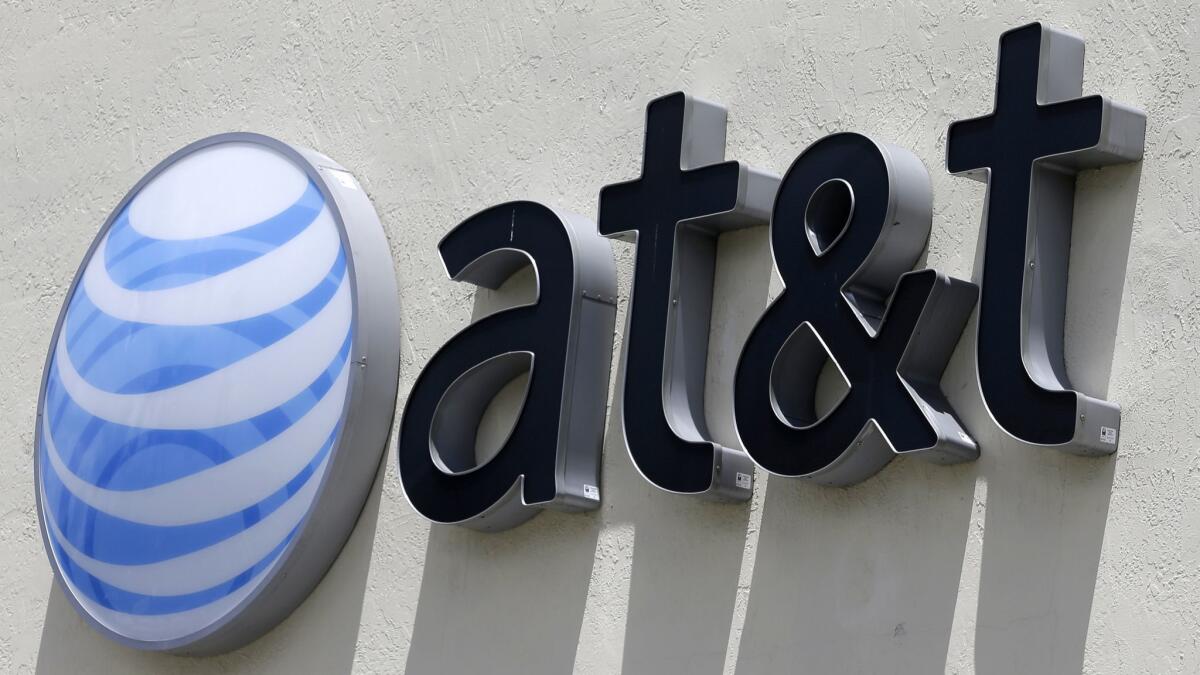AT&T defeats U.S. effort to kill its Time Warner deal

AT&T Inc. beat back another effort by the U.S. government to undo its purchase of Time Warner, cementing an $85-billion deal to help it compete with Netflix Inc.
The U.S. Circuit Court of Appeals in Washington said Tuesday the Justice Department failed to establish that a lower-court judge made a clear error when he rejected the government’s case that AT&T should be blocked from buying Time Warner on antitrust grounds.
The department has no plans to seek further review. That ends the Trump administration’s attempt to unravel a tie-up the U.S. said would lead to higher prices for pay-TV subscribers around the country — though one analyst said it could make the Justice Department hungrier for a win on the next big merger up for review: T-Mobile US Inc.’s pending $26-billion takeover of Sprint Corp.
“The government’s objections that the district court misunderstood and misapplied economic principles and clearly erred in rejecting the quantitative model are unpersuasive,” the court said in a 35-page ruling.
Tuesday’s decision by a panel of three D.C. circuit judges inflicts another loss on Makan Delrahim, the head of the Justice Department’s antitrust division, as he tries to get tough on mergers that combine companies in different parts of an industry supply chain. His lawsuit against the takeover, which was meant to help AT&T stem the exodus of pay-TV subscribers, marked the first time in decades that U.S. antitrust enforcers had gone to trial to stop such a “vertical” merger.
It was also the first major merger challenge under President Trump, who vowed to oppose the tie-up during the 2016 election campaign and, as president, has attacked Time Warner’s CNN for its news coverage. The litigation turned the AT&T-Time Warner deal, announced more than two years ago, into a marathon.
The government’s antitrust team turns next to the T-Mobile-Sprint deal, under the new attorney general, William Barr. Unlike AT&T’s venture into the media industry, the takeover would combine two direct competitors and consolidate the wireless sector into three major players from four.
Tuesday’s ruling “is a negative” for the T-Mobile deal because the Justice Department staff “will be anxious to bring a suit they believe they can win,” Blair Levin, an analyst at New Street Research, wrote in a note to investors. “In our experience with [Justice Department] litigators, a loss is not something that causes them to want to retreat, but rather something that makes them anxious to have a new battle.”
AT&T declined to comment on the Justice Department’s decision not to pursue the case further. Its shares rose 9 cents, or 0.3%, to $31.22.
“The merger of these innovative companies has already yielded significant consumer benefits, and it will continue to do so for years to come,” David McAtee, AT&T’s general counsel, said in a statement.
The appeals court upheld a June decision by U.S. District Judge Richard Leon that the government failed to show that AT&T would be able to raise prices for Time Warner programming sold to competing cable and satellite-TV companies. The Justice Department had argued that if a rival refused to pay higher prices for CNN, say, or the Final Four college basketball tournament, and if those channels were pulled off the air as a result, some subscribers would switch to AT&T’s DirecTV business so they could watch.
AT&T attacked the government’s case as riddled with errors. The company said it had no incentive to pull programming from rivals because it would lose revenue as a result. AT&T argued the deal would bring more choice to consumers by letting it feed Time Warner content such as HBO and CNN to its mobile, internet and video subscribers and go head to head with Netflix and Amazon.com Inc.
AT&T closed the Time Warner transaction June 14, two days after Leon’s ruling, agreeing to manage Time Warner’s Turner Broadcasting as a separate business until 2019 and not play a role in setting prices for Turner programming.
More to Read
Inside the business of entertainment
The Wide Shot brings you news, analysis and insights on everything from streaming wars to production — and what it all means for the future.
You may occasionally receive promotional content from the Los Angeles Times.










